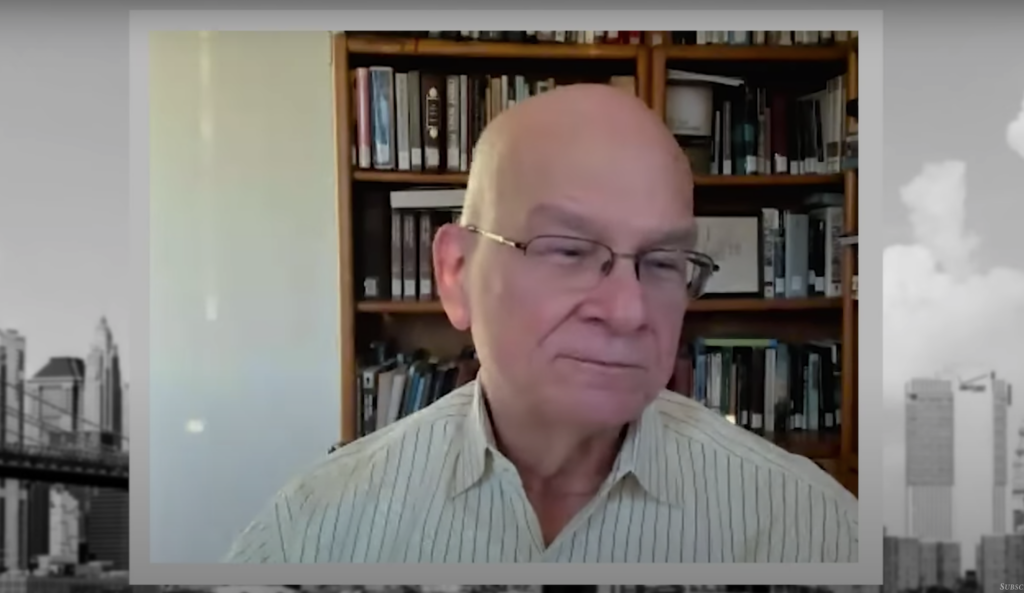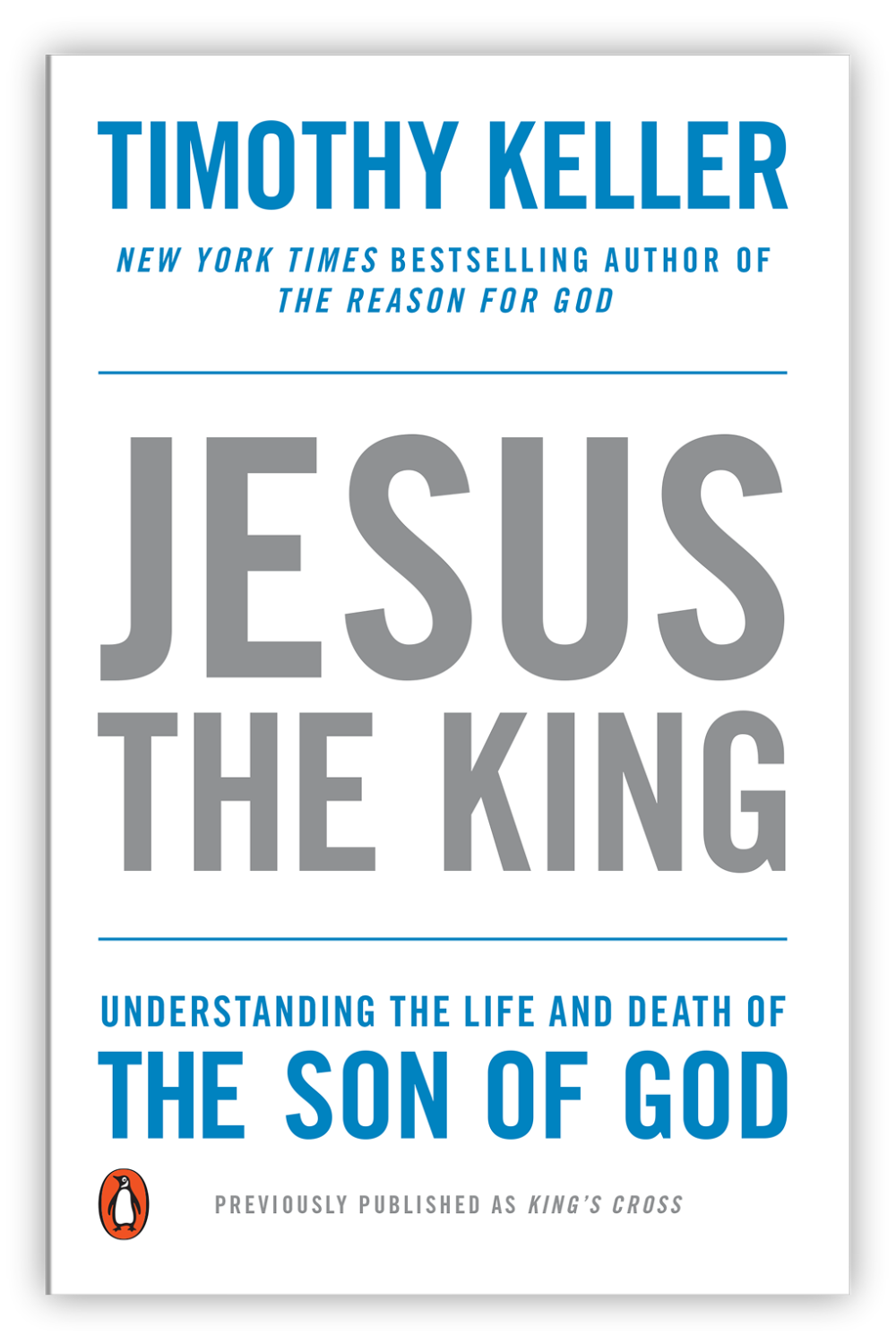The ‘Deconstruction’ Phenomenon
For the past several years, many people who have been raised in the evangelical church have been rethinking their previously-unquestioned beliefs. In this highly publicized phenomenon, many have left the faith altogether, while others have migrated to other branches of the Christian church. Some have been the victims of sexual abuse or of corrupt abuses of power within the church. [] [1] I believe people who have been the victims of sexual, physical, or other kinds of direct abuse within the Christian community will need to go through a much more complicated and arduous process to keep or renew their faith. I will, in general, not be addressing them directly in this article. But the great majority have been turned off by the hypocrisy of Christians, by clergy scandals, by harsh and legalistic teaching, and by the inappropriate marriage of Christianity with a political party or traditional culture.
This trend has been called ‘faith deconstruction.’ The term deliberately invokes the work of Derrida and Foucault and other French post-structuralists, who sought to find and unmask the hidden power dynamics behind the conventional texts and institutions of society. To associate this movement with these thinkers provides it with some “postmodern chic” [] [2] Carl Trueman, “Josh Harris’s Message Remains the Same”, First Things, August 12, 2021.] and presents it as something quite new. But it is not.
Men As Trees, Walking
When we began Redeemer Presbyterian Church in New York City, we experienced good growth in numbers. A dedicated number of Christian believers in the city used Redeemer as an opportunity to reach out to their colleagues, neighbors, and friends who didn’t identify as Christians. They invited them to come to services and we soon found that about one-third of our attendance consisted of secular people with little or no church background. Another third was made up of Christians.

However, there was a last third of our regular attenders that was harder to describe. Many had been active in churches in the past, and many of those churches were conservative, evangelical congregations. But after coming to New York City, they had stopped attending church entirely and had given up on Christianity. They had done what today is called ‘deconstructing’ their previous faith. Those who attended told me that Redeemer was offering them something more credible than they had experienced before. But they still felt suspended between belief and unbelief. And so 30 years ago our church in Manhattan was filled with people in various stages of deconstructing and reconstructing the faith with which they had grown up.
D.M. Lloyd-Jones has a fascinating sermon about this group—an exposition of Mark 8 called “Men as Trees, Walking.” In that sermon (now a chapter in the book Spiritual Depression: Its Causes and Cures) there is an account of Jesus touching a blind man to heal him. When Jesus asks him if he can see now, the man replies “I see men as trees, walking” (verse 24, KJV). In other words, he could make out moving forms, but he still could not see clearly. Jesus touched him a second time and his sight was healed completely (verse 25). Lloyd-Jones then argued that the account can serve as a picture of many who seem to have been touched by Christian faith and yet still struggle with it. As a pastor, Lloyd-Jones had talked to many in this spiritual condition. It was hard for him to be sure if they were Christians or not and it was hard for them to say themselves.
“They seem to know enough about Christianity to spoil their enjoyment of the world, and yet they do not know enough to feel happy about themselves…They see and yet they do not see. I think you will agree that I am describing the condition, alas, of large numbers of people.” [] [3] D.M. Lloyd-Jones, Spiritual Depression: Its Causes and Cure, Eerdmans, 1965, 40.
It is difficult for me to tell if these people are really multiplying rapidly or whether they are just being given more publicity. But that doesn’t actually matter. For many the Christian faith they grew up with or held for many years no longer feels credible to them. They are rethinking the whole thing.
Deconstruction — A Destructive Account
The controversy around this phenomenon has not been healthy. To begin with, the very word does not have a clear and agreed upon definition.
It was originally used by French philosopher Jacques Derrida who insisted that it was not a methodology by which the reader dismantled all the beliefs of an author. Rather, he said, it was to read a text being aware of the possible ways in which authors contradicted their own premises, and so weakened the coherence of their own position. [] [4] Christopher Watkin, Jacques Derrida, Presbyterian and Reformed, 2017, 23 Arguably, it was Derrida’s American followers who turned it into a far more destructive process. Former Yale English faculty member William Deresiewicz describes it like this:
Anyone in the academic humanities… these last 40 years—will see the problem. Loving books is not why people are supposed to become English professors, and it hasn’t been for a long time…The whole concept of literature—still more, of art—has been discredited. Novels, poems, stories, plays: these are “texts,” no different in kind from other texts. The purpose of studying them is not to appreciate or understand them; it is to “interrogate” them for their ideological investments (in patriarchy, in white supremacy, in Western imperialism and ethnocentrism), and then to unmask and debunk them, to drain them of their poisonous persuasive power. The passions that are meant to draw people to the profession of literary study, these last many years, are not aesthetic; they are political. [] [5] https://quillette.com/2022/08/17/why-i-left-academia-since-youre-wondering/
The academic concept of “deconstruction” assumes that all moral claims are efforts to exert power over us in order to prevent our liberation to think for ourselves and create our own selves and lives. Deconstruction means then to unmask, relativize, and disempower such claims so they no longer hold us in their sway.
It is clear that for some people ‘faith deconstruction’ is just that. They have come to see the historic teachings and doctrines of the church as crafted to make us pawns and suppress our personhood. They are walking away from both the church and traditional Christian faith altogether. For them, deconstruction—a dismantling—is the end-point of the process.
Deconstruction — A Constructive Account
However, there is another way to think of deconstruction. Rather than looking at its philosophical roots, consider it as an image. Deconstruction or dismantling happens, at least in part, when we are remodeling a building.

Parts of the building—especially the foundation itself—are left intact while other parts are taken down or removed in order to put up an overall better edifice. In some cases, the deconstruction is so extensive that no one can reside or work in the building for a period, but in those cases the final reconstruction is often the best and most extensive. In this metaphor, deconstruction enables reconstruction—strengthening and improvement—which could not occur otherwise.
Recently, new windows were put into all the apartments in the building in which we reside. To do this, the old windows and walls next to them had to be literally cut out. Our furniture and pictures and belongings had to be moved and covered for protection. We had to vacate our somewhat ‘deconstructed’ home completely while the workmen were doing their job. But the new windows are a great improvement over the old ones in every way.
Thinking along these lines, we can say that Christians can indeed sometimes go through periods of “deconstruction” and yet emerge stronger. We can go through times in which discarding or altering some of our ideas results in an overall strengthening of our Christian commitment.
An interesting case study of this can be seen in the life of the 20th century evangelical leader, Francis Schaeffer. As a young man, Schaeffer had been associated with fiery fundamentalist leader Carl McIntire. He was part of McIntire’s Bible Presbyterian Church, American Council of Christian Churches, and International Council of Christian churches. The main burden of these groups was to denounce, in a highly combative way, both liberal theology and any believers who were unwilling to separate from more mainline churches. Schaeffer and his wife Edith were loyal workers in this movement. In 1947-48 they moved to Europe to do evangelism, training, and writing. But after three years of ministry in Switzerland, he wrote:
I faced a spiritual crisis in my own life….I told Edith that for the sake of honesty I had to go all the way back to my agnosticism and think through the whole matter….I rethought my reasons for being a Christian.” [] [6] Francis Schaeffer, “Preface” in True Spirituality, Tyndale House Publishers, 1971. (No pagination)
This happened from 1951-52 and it was a difficult time for Edith. In her book The Tapestry, she recounts “I was scared” at her husband’s searching, struggling and rethinking. [] [7] Edith Schaeffer, The Tapestry: The Life and Times of Francis and Edith Schaeffer, Special Memorial Edition, Word, 1984, 355. Using the metaphors of Pilgrim’s Progress, she knew he was in the Slough of Despond and Doubting Castle—the question was: would he ever emerge? Her account of those months indicates that she prayed far more than she talked to Fran. [] [8] Ibid, 355-356.
What had triggered this crisis? When Schaeffer first began to travel through Europe and speak to Christian leaders about the spiritual needs of the continent, he had occasion to meet with British preacher Dr. D.M. Lloyd-Jones, who was himself a theological conservative and proponent of separation from the larger, liberal denominations. But Lloyd-Jones was blunt about the lack of kindness and love he saw in Schaeffer’s American fundamentalist movement, and how it spent far more time harshly denouncing Christians with other views than it did speaking the truth in love to the world. [] [9] William Edgar, Schaeffer on the Christian Life: Countercultural Spirituality, Crossway, 2013, 49. As his biographers have pointed out, the Schaeffers began to experience this lack of love from some of his own mentors. [] [10] Edgar, 53-55; Barry Hankins, Francis Schaeffer and the Shaping of Evangelical America, Eerdmans, 2008, 26, 28-50. In addition, he recognized that the emphases of his fundamentalism were irrelevant to the young European skeptics he met. Whether we “should drink alcohol, dance, go to movies, and issues of end-time theology were not central to the problems of twentieth-century Europeans.” [] [11] Hankins, 44. Schaeffer came to see two huge problems—
“first…among many of those who held the orthodox position one saw little reality in the things that the Bible so clearly said should be the result of Christianity. Second, it gradually grew on me that my own reality was less than it had been in the early days after I had become a Christian.” [] [12] Schaeffer, “Preface” True Spirituality.
By ‘reality’ Schaeffer meant that the life-changes that the Bible speaks of—growth in love, joy, peace, patience, kindness, goodness, humility, and self-control (cf. Galatians 5:19-26)—were simply not evident in the lives of his colleagues and were inadequately present in his own. There were two possible reasons for these phenomena. First, it was possible that orthodox Christian beliefs simply weren’t true, that they could not produce life-change because they did not describe the universe as it really was. A second possibility, however, was that even if some of his Christian beliefs were true, others might not be. And this might account for his own personal ‘lack of reality.’
Schaeffer recounts how he emerged stronger. Looking honestly at the case for the truth of Christianity—and being open to the possibility it might be false—he emerged saying “there [are] totally sufficient reasons to know that the infinite-personal God does exist and that Christianity was true.” [] [13] Ibid But if it was, why was it not having the proper effect on his life and other professing Christians’ lives?
“I saw that the problem was that with all the teaching I had received after I was a Christian…I [had not emphasized] what the Bible says about the meaning of the finished work of Christ for our present lives. Gradually the sun came out and the song came….In that time of joy and song I found poetry beginning to flow again—poetry of certainty, an affirmation of life, thanksgiving, and praise. Admittedly, as poetry it is very poor, but it expressed a song in my heart that was wonderful to me.” [] [14] Ibid
Schaeffer unpacks what he means by ‘the finished work of Christ for our present lives’ in the rest of the book True Spirituality. Theologically speaking, he discovered the true relationship between justification and sanctification, and the distinction between law and gospel. Put more simply, he came to see the implicit legalism that had dominated his heart. He saw that we tend to rely more on doctrinal and moral rectitude than on the grace and finished work of Christ for our acceptance with God. That leads, paradoxically, to both self-righteousness and pride in our spiritual accomplishments, and yet an undercurrent of anxious insecurity and irritability, since we know down deep of our great imperfections. Growth in holiness, in this framework, is mainly an act of the will, refraining from certain behaviors.
Schaeffer came to instead follow in the footsteps of older Reformed theologians like John Owen, who taught that true spiritual reality comes from the heart that is reordered and changed by contemplating the grace of Christ in the gospel through on-going growth in repentance and faith.
Schaeffer came to instead follow in the footsteps of older Reformed theologians like John Owen, who taught that true spiritual reality comes from the heart that is reordered and changed by contemplating the grace of Christ in the gospel through on-going growth in repentance and faith. [] [15] See Owen’s Mortification of Sin and companion volume, Meditations and Discourses on the Glory of Christ. Owen’s argument in the first volume that only a faith-sight and heart-grasp of Christ dying on the cross for us will free us from sin by leading us to hate the sin rather than only selfishly hating the consequences of the sin. Similarly, in the second volume Owen argues that, only as we see not just the truth of who Christ is but the beauty and glory of who he is, will we long to be like him out of love and joy and not out of duty alone. Along with this new understanding of how spiritual growth occurs, Schaeffer ‘broke with fundamentalism’ as his biographer Barry Hankins puts it. He founded L’Abri—a ‘refuge’—a retreat center where skeptics and people with objections to faith could come and receive patient, loving dialogue, a place where the arts and literature were discussed appreciatively.
Schaeffer and his L’Abri movement are not above criticism, and some of his early fundamentalist combativeness may have re-emerged in his later years after he moved back to the United States. However, his life provides a telling case of how genuine ‘deconstruction’ can lead to a major reconstruction rather than to a loss of faith.
Occasions For Reconstruction
Schaeffer’s deconstruction and reconstruction was the most comprehensive possible. For the sake of honesty, he had to consider that Christianity was not true at all. But this process can take milder forms and there are a good number of situations or life transitions in which a rethinking and reconstruction of faith is called for in order for spiritual maturation to take place.
1. Children in Christian homes
The first is the case of children raised in Christian families. One of the few extensive treatments of spiritual experience in the young is found in chapter 2 of Archibald Alexander’s 1844 volume, Thoughts on Religious Experience.
[]
[16] A. Alexander, Thoughts on Religious Experience, Banner of Truth, 1967, 10-20.
Alexander observes that most children coming up in strong Christian homes have over the years a number of episodes of ‘spiritual impressions’ when the child is moved toward belief in and obedience to Christ. Every year or two the child may have a season in which they seem to grow in faith—and then cool off—and later express a renewed desire to believe.
For the sake of honesty, he had to consider that Christianity was not true at all. But this process can take milder forms and there are a good number of situations or life transitions in which a rethinking and reconstruction of faith is called for in order for spiritual maturation to take place.
Alexander counsels parents not to try to figure out which of these is a ‘true’ conversion, which ones are preparations, and which of them are re-commitments. It may not be possible to discern this. What may be happening, however, is that a 12 year old is coming to understand the world and his or her own heart far better than an 8 year old. It means that, essentially, children growing up in the faith have to continually ‘go back to the foundations’ and ‘rethink’ what they believe and, we hope, grow stronger through it.
2. Experiences of suffering and injustice
A second situation is when a Christian faces an unusual amount of suffering or injustice. The psalms are filled with vivid accounts of the struggles believers have when they experience life-threatening sickness or persecution and mistreatment. The psalms are remarkably realistic about what a fight it is to maintain faith in such times. Psalm 39 and 88 end in darkness, without resolution, with the psalmist wishing he could get away from God (Psalm 39:13). Yet Psalm 119 speaks repeatedly of having been driven through confusion and questioning to deeper commitment to God through affliction (Psalm 119:67, 71, 92).
One of the more complete examples of such a journey of reconstruction is seen in Psalm 73. The author is crushed by the injustice of life, of “the prosperity of the wicked” (verse 3) who oppress people (verse 8), but only become more popular and powerful (verses 10, 12). The author comes very near to losing his faith (verse 2) and discouraging faith in others as well (verse 15).
The reason, as he sees in hindsight, is that he had a naïve faith, not unlike that of Job’s miserable comforters. He had a tacit belief that God would always give good and faithful people good lives and give bad people bad lives (verse 13). Because his faith contained this mistaken idea, it could not endure in the real world. When he saw evildoers faring quite well over an extended time he was thrown into confusion. “When I tried to understand all this it troubled me deeply” (verse 16a)—his “heart was grieved” and he was like a “brute beast” before God. While the psalm may give the impression that his ‘deeply troubled’ period was short, there is no reason to assume that. His faith seemed to be falling apart. In reality, part of it—the mistaken part—was being dismantled to make way for reconstruction. Finally he “entered the sanctuary of God” and “understood their final destiny” (verse 16b). Eventually he comes to see that his concept of time is not God’s, that divine justice may take a long time or may only be final in the next world. Most important of all, he recognizes that only God is his “portion” (verse 26), his ultimate wealth, his highest good, and not any this-world status or comfort.
3. Disillusionment with Christian leaders—and with themselves
Many people have had their faith shaken when believers they respected turned out to have been hypocrites. Some have been exposed as leading ‘double lives’, privately engaging in actions that publicly they denounced. Others showed themselves to be domineering and power-hungry, or manipulative and dishonest, or greedy for money and material goods. When these revelations are made, some disillusionment is unavoidable and natural. But, as the Scottish preacher Robert Murray M’Cheyne points out in a sermon, “What Have I To Do Any More With Idols?” it is legitimate to love ministers, “but ah! Make not an idol of them. The people that would have worshiped Paul [Acts 14:12-13] were the very people that stoned him and left him for dead [Acts 14:19]. O, I wish that this day may bring you so near to Christ, and so much under the love of God and the dew of Israel, that you shall no more glory in man!”
[]
[17] Andrew Bonar, Memoir and Remains of Robert Murray M’Cheyne, Banner of Truth, 1966.

M’Cheyne cites the incident in Acts 14 where the crowds begin to worship Paul and Barnabas as gods, and when they find they are not, they turn on them and try to kill them. M’Cheyne argues here that while deep grief and disappointment over a fallen leader is natural, if one’s faith completely evaporates over it, it may be that your faith was resting more in the leader than in Jesus himself, and therefore there was a kind of idolatry going on.
Just as devastating to immature faith, believers may themselves fall into a sin that of which they thought themselves incapable. The radical disillusionment with oneself will push the Christian to ask fundamental questions (as Francis Schaeffer did) about their ‘spiritual reality.’
4. Never learning distinction between background, secondary, and primary beliefs
One of the main reasons some people get stuck in deconstruction and never move on to reconstruction is an inability to discern between primary beliefs—such as in the Trinity, the deity of Christ, his atonement on the cross and his bodily resurrection from the dead—and elevate many secondary and even ‘tacit’ unstated background beliefs.
By secondary beliefs we mean, for example, issues surrounding creation, the age of the earth, and evolution. Or issues such as end-time prophecy. If a Christian is raised in a church in which there is no differentiation between primary and secondary doctrines, so that each and every teaching of the congregation is promoted as equally important and crucial, then when it becomes clear to young believers that one or two of these secondary doctrines are questionable and the case for them is weak, they are prone to question everything they’ve been taught.
When people are presented with the Christian faith, behind the actual doctrines lies a backdrop of other beliefs, attitudes, and expectations. They may include implicit false ideas about how non-believers are bad people, how life will go well for a true believer, and how sinning will feel terrible. Are any of these background beliefs actually part of the historic Christian faith? Not at all. But when young believers find through experience that non-believers can be nice people, that life can go terribly for believers, and that sin can feel great—the loss of tacit beliefs can lead them to question the whole faith.
If a Christian is raised in a church in which there is no differentiation between primary and secondary doctrines, so that each and every teaching of the congregation is promoted as equally important and crucial, then when it becomes clear to young believers that one or two of these secondary doctrines are questionable and the case for them is weak, they are prone to question everything they’ve been taught.
5. Living in ‘bubbles’ and environmental faith.
One of the most common reasons for people ‘losing their faith’ when they moved to New York City was that they had grown up in sheltered enclaves—in ‘bubbles.’ They were not only raised in conservative churches, but in very traditional, conservative parts of the country. In those places, Christianity was not questioned, or at least not overtly. And people believed it because, well, pretty much everyone else did too. But then they moved into what Michael Wolff calls the other ‘nation.’
“There is a fundamental schism in American cultural, political, and economic life. There’s the quicker-growing, economically vibrant…morally relativist, urban-oriented, culturally adventuresome, sexually polymorphous, and ethnically diverse nation…and there’s the small town, nuclear-family, religiously-oriented, white-centric other America, [with]…its diminishing cultural and economic force….[T]wo nations…” [] [18] Michael Wolff, “How Rupert Murdoch’s Fox News Channel Created a Media Nation Unto Itself” in New York, Feb 26 2001, 19.
Christians who live in what Wolff rather condescendingly calls the ‘other America’ do not need to think out their faith and make it their own intellectually and experientially. Rather, they pick it up from their cultural environment, and when that environment changes, they may be at loose ends. At Redeemer, many people who had come from a church background were offered ways to root themselves in the faith in such a way that they could thrive and grow in a non-Christian cultural environment.
Reconstruction And Our Cultural Moment
What do these occasions for faith reconstruction have in common? In each case, in one way or another, the believers’ faith was not mature and full enough to handle a change in the world they were facing. Sufferers often find that their faith was adapted to the world-they-want and so it could not survive an encounter with the real-world-as-it-is. The disillusioned found their faith rested in an imagined world that was divided between the very good who seldom sinned in serious ways and the very bad who did so regularly. Again, such faith cannot survive an encounter with the real world. Those who find themselves shaken by the skeptical questions of non-supportive cultures will also be led to rethink their faith and make changes. In all these cases, the “change in worlds” can either throw us out of the faith altogether, or it can lead us to make our faith more fully biblical, internally consistent, experientially authentic, and intellectually robust.
Faith reconstruction always means strengthening faith for life in the world in which we find ourselves. The Jews were moved by God out of a nation that enshrined their religion and where they were a majority to Babylon, a pagan culture where they were a minority. In this new, more hostile world, the Jews’ faith was refined and grew so that after the exile idolatry never reasserted itself among them as it had always done in the past (cf. The book of Judges).
I believe that today more Christians than ever will be going through the process of rethinking their faith. One of the main reasons is that, through media and the internet, there are no longer any ‘sheltered enclaves’ where people can grow up taking the Christian faith for granted, believing it because everyone else they know believes it. But the key to assuring that this re-thinking will result in strengthened faith rather than lost faith is that we must learn not only to closely examine the foundations of our Christianity but also to just as closely examine the cultural narratives that present themselves as the alternatives to Christian faith.
For example, many deconstructed ex-Christians testify that Christianity did not let them ‘be true to themselves.’ But as they go on to explain their new life without religious faith, it is obvious that, while they have questioned their Christian beliefs, they have not at all questioned their new beliefs. [] [19] The concept of the therapeutic self, something created in modern times by social forces, and which, as many point out, has grave weaknesses as a way to understand human nature. It has been adopted unquestioningly as if it is just a ‘given’ that ‘everyone knows.’ And so one set of naïve, unexamined beliefs has been jettisoned for another set just as unconsidered.
Christians in our cultural moment will have to rethink their faith, but at the same time they must learn to ‘doubt their doubts.’ They must deconstruct not only their tacit, mistaken beliefs and their secondary beliefs that pose as primary, but also just as importantly, the cultural narratives that are offered as the alternatives to Christian faith.
Christians in our cultural moment will have to rethink their faith, but at the same time they must learn to ‘doubt their doubts.’ They must deconstruct not only their tacit, mistaken beliefs and their secondary beliefs that pose as primary, but also just as importantly, the cultural narratives that are offered as the alternatives to Christian faith.
It is this missing part of faith—rethinking—that we will explore in future articles. What are the cultural narratives of our western secular culture that offer themselves as substitutes for religious belief? How should we respond to them?
A Second Touch
In his sermon “Men as Trees Walking” Lloyd-Jones points out that, when asked, the blind man touched by Jesus admits that he still doesn’t see things rightly. What if he had failed to be so honest? What if he had said, “I’m fine—I don’t need any more help. This is a great improvement!” No—he honestly admitted that things were still not right, and this opened the way for Jesus to touch him a second time and so restore his sight completely.
Lloyd-Jones counsels that, if we feel stuck between blindness and sight, between belief and disbelief, we should be honest with God and seek him until our vision clears.
“Say [to God]: ‘I want the truth whatever it costs me’….plead with Him to give you clear sight, perfect vision, and to make you whole. And as you do so it is my privilege to remind you that he can do it. Yea, more I promise you in his blessed name that He will do it.” [] [20] Lloyd-Jones, Spiritual Depression, 48.




